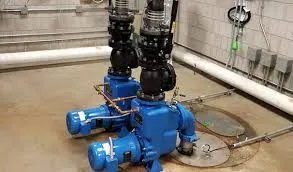Occitan
- Afrikaans
- Albanian
- Amharic
- Arabic
- Armenian
- Azerbaijani
- Basque
- Belarusian
- Bengali
- Bosnian
- Bulgarian
- Catalan
- Cebuano
- Corsican
- Croatian
- Czech
- Danish
- Dutch
- English
- Esperanto
- Estonian
- Finnish
- French
- Frisian
- Galician
- Georgian
- German
- Greek
- Gujarati
- Haitian Creole
- hausa
- hawaiian
- Hebrew
- Hindi
- Miao
- Hungarian
- Icelandic
- igbo
- Indonesian
- irish
- Italian
- Japanese
- Javanese
- Kannada
- kazakh
- Khmer
- Rwandese
- Korean
- Kurdish
- Kyrgyz
- Lao
- Latin
- Latvian
- Lithuanian
- Luxembourgish
- Macedonian
- Malgashi
- Malay
- Malayalam
- Maltese
- Maori
- Marathi
- Mongolian
- Myanmar
- Nepali
- Norwegian
- Norwegian
- Occitan
- Pashto
- Persian
- Polish
- Portuguese
- Punjabi
- Romanian
- Russian
- Samoan
- Scottish Gaelic
- Serbian
- Sesotho
- Shona
- Sindhi
- Sinhala
- Slovak
- Slovenian
- Somali
- Spanish
- Sundanese
- Swahili
- Swedish
- Tagalog
- Tajik
- Tamil
- Tatar
- Telugu
- Thai
- Turkish
- Turkmen
- Ukrainian
- Urdu
- Uighur
- Uzbek
- Vietnamese
- Welsh
- Bantu
- Yiddish
- Yoruba
- Zulu
Telephone: +86 13120555503
Email: frank@cypump.com
Dec . 01, 2024 03:51 Back to list
Choosing the Right Chemical Drum Pump for Your Application Needs
Chemical Drum Pump A Comprehensive Overview
In the industrial landscape, the efficient transfer of liquids is crucial for various processes, particularly when dealing with chemicals. One of the essential tools that facilitate this task is the chemical drum pump. Designed specifically for transferring corrosive, hazardous, or viscous liquids from storage drums, these pumps are indispensable in numerous sectors, including pharmaceuticals, oil and gas, agriculture, and manufacturing.
What is a Chemical Drum Pump?
A chemical drum pump is a mechanical device used to transfer liquids from a drum or container to another vessel. These pumps are typically designed to handle the unique challenges posed by various chemical compounds, such as acidity, volatility, and viscosity. They come in various types, including manual, electric, and pneumatic pumps, each suited to specific applications and requirements. Most commonly, these pumps consist of a suction tube, an impeller or diaphragm mechanism, and a discharge outlet.
Types of Chemical Drum Pumps
1. Manual Drum Pumps These pumps are operated manually and are ideal for small-scale applications. They are often used for transferring liquids in low volume situations, such as in small labs or workshops. Manual drum pumps are typically lightweight and portable, making them easy to use and store.
2. Electric Drum Pumps Electric pumps are powered by an electric motor and are suitable for larger operations requiring consistent and efficient liquid transfer. They can handle a wider range of viscosities and are often equipped with features like variable speed settings, which allow users to adjust the flow rate according to their specific needs.
3. Pneumatic Drum Pumps These pumps use compressed air to operate and are well-suited for transferring liquids that might be flammable or volatile. Pneumatic pumps are particularly popular in environments where electrical equipment may pose a safety hazard.
Advantages of Using Chemical Drum Pumps
chemical drum pump

The benefits of chemical drum pumps are numerous. Firstly, they enhance safety by minimizing the risk of spills and exposure to hazardous substances. Many modern chemical drum pumps are designed with safety features such as automatic shut-off valves and leak-proof seals to prevent accidents.
Secondly, these pumps improve efficiency. Manual transfer of chemicals can be time-consuming and error-prone, especially when dealing with viscous or volatile substances. Chemical drum pumps can significantly reduce the time required for liquid transfer, allowing workers to focus on other critical tasks.
Additionally, chemical drum pumps contribute to reducing waste. By ensuring that nearly all of the liquid is transferred from the drum, they minimize the leftover residue that often results from manual pouring or traditional pumping methods. Moreover, many pumps are designed to handle specific chemicals, decreasing the likelihood of contamination.
Ensuring Safety and Compliance
When utilizing chemical drum pumps, safety is paramount. Proper training for personnel on how to operate the pumps and handle chemicals is essential. Additionally, regular maintenance and inspection are crucial to ensure that pumps are functioning correctly and safely.
It is also important to ensure compliance with local regulations regarding the handling and transfer of hazardous materials. Many regions have stringent guidelines concerning the use of chemical pumps, and manufacturers must ensure that their equipment meets these standards.
Conclusion
In conclusion, chemical drum pumps are vital tools for a variety of industries that deal with liquid chemicals. Their ability to enhance safety, improve efficiency, and minimize waste makes them indispensable in many applications. As technology advances, the design and functionality of these pumps continue to evolve, providing even greater benefits to users. For any industry looking to streamline their chemical handling processes, investing in the right chemical drum pump is not just a practical choice but a strategic necessity. Whether you need a manual, electric, or pneumatic solution, understanding the specific needs of your operation will guide you toward the most suitable drum pump for your applications.
-
High-Performance Air Pumps for Sand & Gravel | Efficient Transport
NewsAug.03,2025
-
ISG Series Vertical Pipeline Pump - Chi Yuan Pumps Co., LTD.|Energy Efficiency, Corrosion Resistance
NewsAug.03,2025
-
ISG Series Pipeline Pump - Chi Yuan Pumps | Energy Efficiency&Compact Design
NewsAug.03,2025
-
ISG Series Vertical Pipeline Pump - Chi Yuan Pumps Co., LTD.|High Efficiency, Low Noise, Durable
NewsAug.02,2025
-
ISG Series Vertical Pipeline Pump - Chi Yuan Pumps | High Efficiency, Low Noise
NewsAug.02,2025
-
ISG Series Vertical Pipeline Pump- Chi Yuan Pumps Co., LTD.|High Efficiency&Compact Design
NewsAug.02,2025










